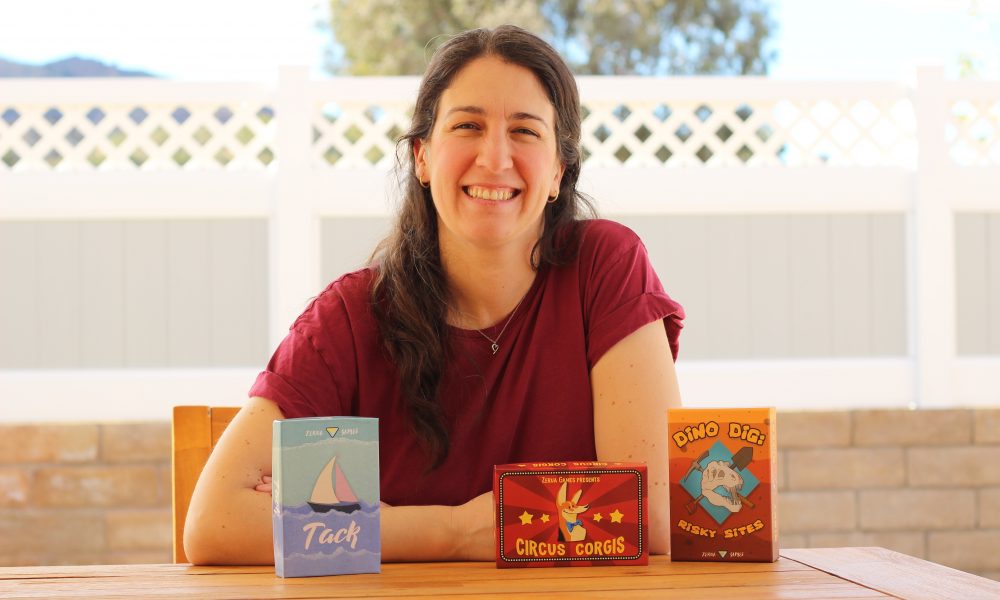

Today we’d like to introduce you to Amelie Le-Roche.
Hi Amelie, can you start by introducing yourself? We’d love to learn more about how you got to where you are today?
I design board games. I’m a creative person and an artist by trade. Born in France, we moved to California when I was eight. It was a tough transition, my sisters and I didn’t speak a word of English. I became the quiet student, always drawing in the margins of my notebooks. Art was always a part of me, but I never thought it could be a career. With the help of my parents, I found direction in my early 20s and went on to study animation at Laguna College of Art and Design. During my career, I got the chance to animate on some of the best video games of our generation, from the Uncharted series to several Call of Duty games. It’s definitely been an incredible ride. I had to change pace when we welcomed our daughter and we decided I would be the stay at home parent. I took on part-time jobs whenever possible, but I missed animating and creating art on a daily basis. I would have liked to create my own video games, but lacking technical skills, I couldn’t achieve what I wanted on my own. Just to do something fun, I made a board game for my husband’s birthday. It was just supposed to be something cute and special to play together, but I really enjoyed the process. I was intrigued by the idea of making games. In board games, there were no technical hurdles, just sketch an idea, play it, and refine it. I researched meetups in the area, joined some groups online, and quickly learned that anyone can do this. All you need is some inspiration and motivation to create your own game.
Would you say it’s been a smooth road, and if not what are some of the biggest challenges you’ve faced along the way?
It’s been challenging for sure. Designing games is not a career that makes instant profit…or any at all. We’ve had to assess every year if I should keep going or quit. As I get more experience, I learn how to better spend money and which things are a waste. I’ve definitely made mistakes though and learned the hard way. The other big struggle is finding the motivation to be persistent. Each game is its own little puzzle, and sometimes working through that can be tough. After a prototype is built (usually scribbles on index cards), I test the game with other designers or players. Most often there’ll be glaring issues and new problems to tackle, each with a dozen different solutions, some obvious and some undiscovered. It can be challenging to keep working on a broken game, but the designing community has been such an immense well of encouragement. I’ve met so many different people from all walks of life and all different backgrounds. All making games and helping each other be our best selves.
Can you tell our readers more about what you do and what you think sets you apart from others?
Most of the board games I design are light games with a heavy emphasis on visuals. I’m very fortunate to have an artistic background and can create the art for my own games. That was the whole purpose of this endeavor: to make art. I also try to find uncommon themes: corgis, boats, synchronized swimming. It sets my games apart for sure. But on top of that, I’ve pushed myself to actively participate in the community, to give back to others where I can. This is not something that comes easily for an introvert like me, but we all have value. Our individual experiences and knowledge give each of us invaluable insight. And that insight is very important in expanding a community and making it richer. I try to encourage other women and non-binary designers because we need all these voices in our community.
Contact Info:
- Email: [email protected]
- Website: www.zeruagames.com
- Facebook: https://www.facebook.com/ZeruaGames
- Twitter: https://twitter.com/ZeruaGames





Image Credits:
Photos by Khoa Le and Amelie Le-Roche



















